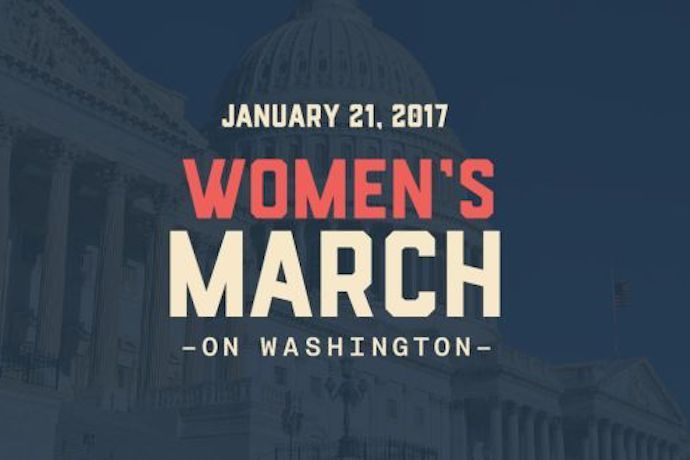Those big, bad pro-abortion feminists! To hear it from even stalwarts of the mainstream liberal media, they are bullying “pro-life feminists” by refusing to allow one of their organizations be an official co-sponsor of the Woman’s March on Washington.
The dust-up started after Emma Green reported in The Atlantic that a Texas-based group called New Wave Feminists had been granted partnership status in the march in the interests of promoting “intersectional feminism” according to Bob Bland, one of the march’s co-chairs. Green painted a portrait of “pro-life feminists” struggling to find a place for themselves in the firmament of mainstream feminism, as well as a feminist movement that was perhaps ready to be “truly ‘intersectional’” by “mak[ing] room for women with diverse convictions, including a moral opposition to abortion.”
The article sparked a fierce backlash in the feminist movement and on Monday, march organizers revoked the organization’s quasi-official status, saying it had made a “mistake.” That, in turn, sparked a spate of articles like one in the Washington Post with the headline “Is there a place at the Woman’s March for Women who are politically opposed to abortion?”
Suddenly, the Woman’s March wasn’t about opposition to Donald Trump, his misogyny, and his policies that would restrict access to both abortion and contraception. It was about how mean and unreasonable mainstream feminists were being by not making room for the nice pro-life women who just wanted to march alongside them. This, despite that fact that, as Green reported, “as many as a few hundred” pro-life women were planning to participate in a march with estimates of attendance running from between 250,000 to close to 500,000. So in a PR feat that not even Trump could pull off, women who account for, at most, under one half of one percent of march attendees have managed to hijack the narrative.
And, for the record, New Wave Feminists, with its tagline “Badass. Prolife. Feminists” is one of a handful of organizations like Feminists for Life and the Susan B. Anthony list that have in recent years sought to claim the mantle of feminism for the anti-abortion movement. These groups aren’t looking to join the feminist movement, however, but in the words of New Wave Feminists are “looking to take feminism back from those who have corrupted it.”
Anti-abortion feminists assert that the original feminists, Susan B. Anthony and Elizabeth Cady Stanton, opposed abortion and, therefore, second-wave feminist support of abortion rights was a corruption of the feminist movement. But as Lynn Sherr and Ann D. Gordon, a historian who edited the six-volume collection of Anthony and Stanton’s papers, wrote in Time, saying that Anthony and Stanton opposed abortion is “not only a stretch; it’s not true: Neither woman took a public stand on the issue, and both rarely mentioned it at all.”
Regardless, that doesn’t keep anti-abortion feminists from asserting that their feminism is the true feminism. As Aimee Murphy of Life Matters Journal wrote in the Washington Post:
We just take human rights a step further than most modern feminists: We affirm the rights of pre-born children to their own lives, to their own bodies. We stand for nonviolence toward women and their children. Yet it has become clear that our feminism isn’t wanted.
Nonetheless, says Murphy, she will march whether organizers like it or not to “fight against the modern popular feminist paradigm that says that to support women’s rights, we must support the violent act that is abortion. We will fight against a culture that understands pregnancy as a disease and sees children not for their inherent dignity, but for how wanted and able they are.”
That doesn’t sound like anti-abortion feminists want to join some kind of big tent feminism; it sounds like they want to knock the tent down and replace it with their own. And it should be noted for the record that march organizers haven’t tried to block participation in the march by either pro-life groups or pro-life individuals. That’s because feminism has room for individuals who are personally opposed to abortion. What it doesn’t have room for is a leadership role for women who try to impose bodily restrictions through the force of law on other women, which at its heart is what the anti-abortion movement is about.
A woman’s right to bodily autonomy is so foundational to the “modern” women’s movement, i.e., the movement that has existed for the past 50 years, that it’s not too strong an analogy to say it would be like inviting slaveholders to join the Abolitionist movement in the name of promoting diverse views on slavery. It’s ironic then that one of the oppressed pro-life feminists told the New York Times that she defined feminism as “the right to live out my womanhood.” The question isn’t why the feminist movement does have room for her; it’s why she doesn’t want to allow other woman to do the same.





